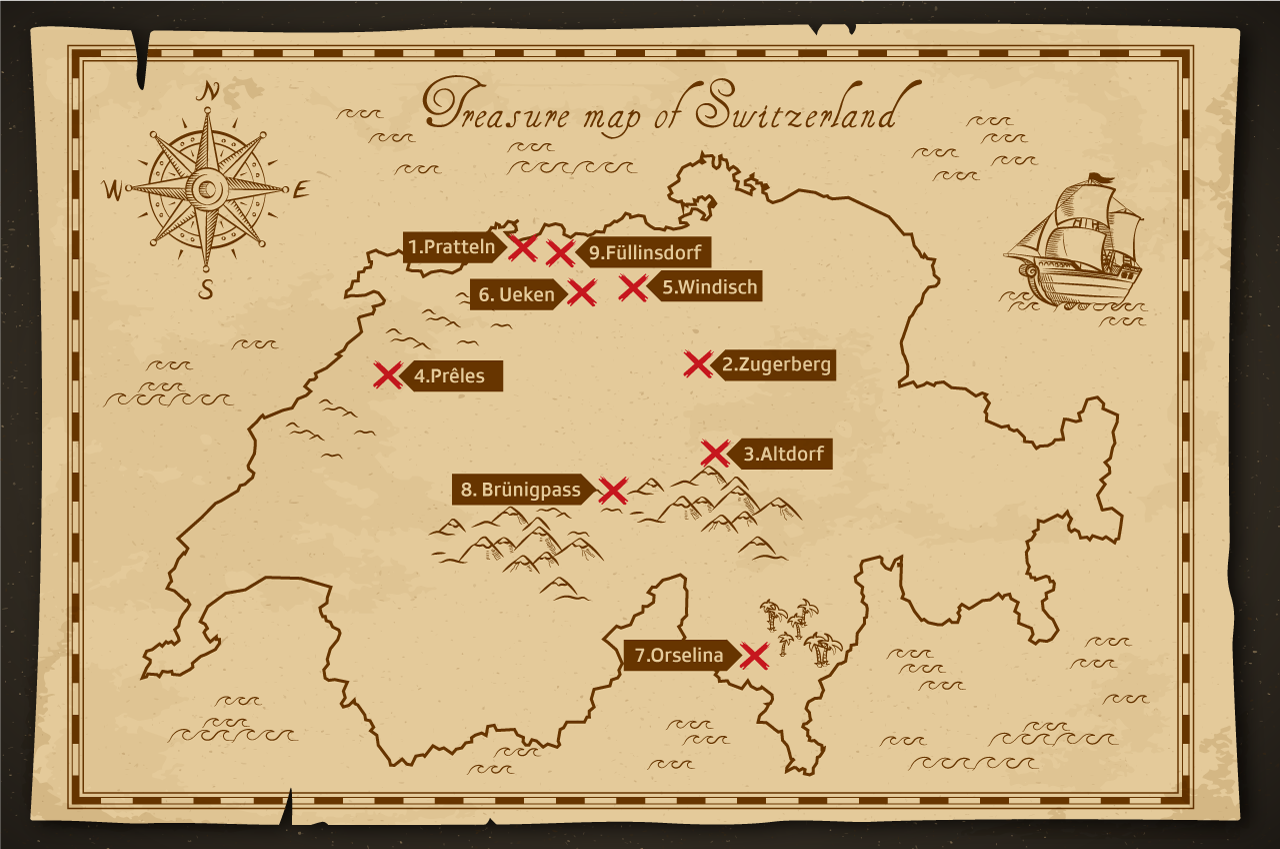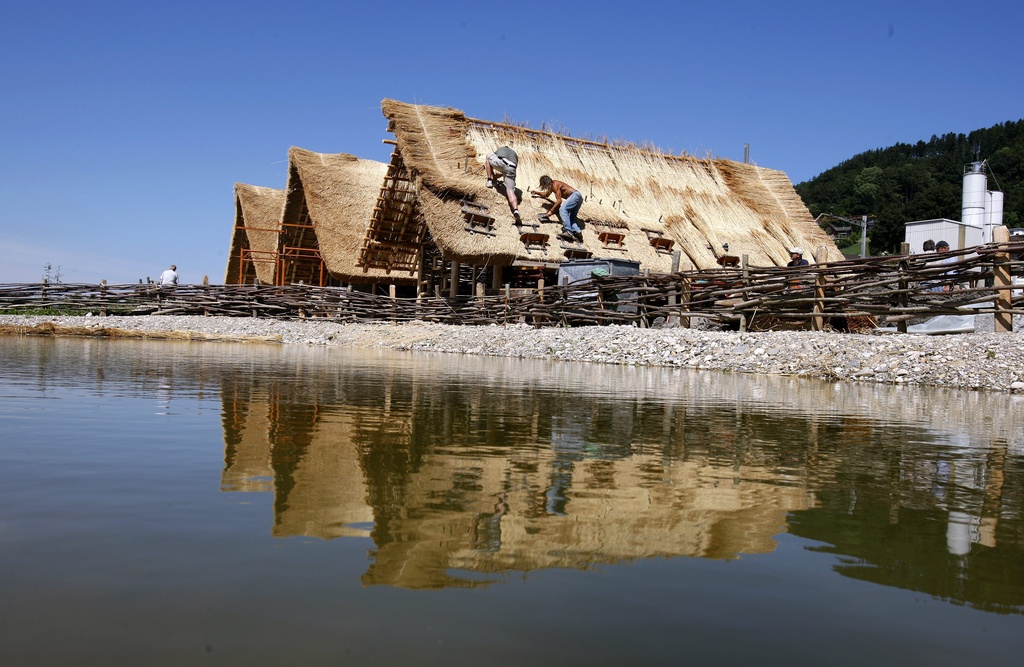
Divers to retrieve Bronze Age artefacts from Swiss lake
Archaeologists are diving into Switzerland’s Lake Thun to rescue the remains of Bronze Age pile dwellings before they wash away.
According to canton Bern’s education and culture authorities, the 3,500-year-old settlement is endangered by erosion and likely to disappear soon. From January through March, the divers will be working in front of Schadau Castle.
Initial investigations revealed that the northern area of the site was in a worrying condition. The last remains of the pile dwellings now lie unprotected at the bottom of the lake. The erosion, which washes away up to 50cm of sediment per year, is caused by the strong natural current of the Aare river as well as boat traffic.
In 2014, a recreational diver turned in various bronze objects that he had found in Lake Thun. Archaeologists immediately launched an investigation and soon found piles and ceramic shards, which were clearly from prehistoric settlements. The piles date from the early Bronze Age, circa 1590 to 1540 BC. The three-month rescue excavation aims to document the valuable evidence before it disappears.
Before the discovery five years ago, pile dwellings were hardly known in Lake Thun. However, graves from the Early Bronze Age had been found in Thun, Hilterfingen, Amsoldingen and Spiez.
Meanwhile, several settlements from the early and late Bronze Ages have been found in the area. According to archaeologists, their dimensions are considerable and are in no way inferior to the large lakeside settlements on the edge of the Jura.

More
Discovering Switzerland’s buried treasure

More
Lake dwellings reveal hidden past

In compliance with the JTI standards
More: SWI swissinfo.ch certified by the Journalism Trust Initiative




























You can find an overview of ongoing debates with our journalists here . Please join us!
If you want to start a conversation about a topic raised in this article or want to report factual errors, email us at english@swissinfo.ch.